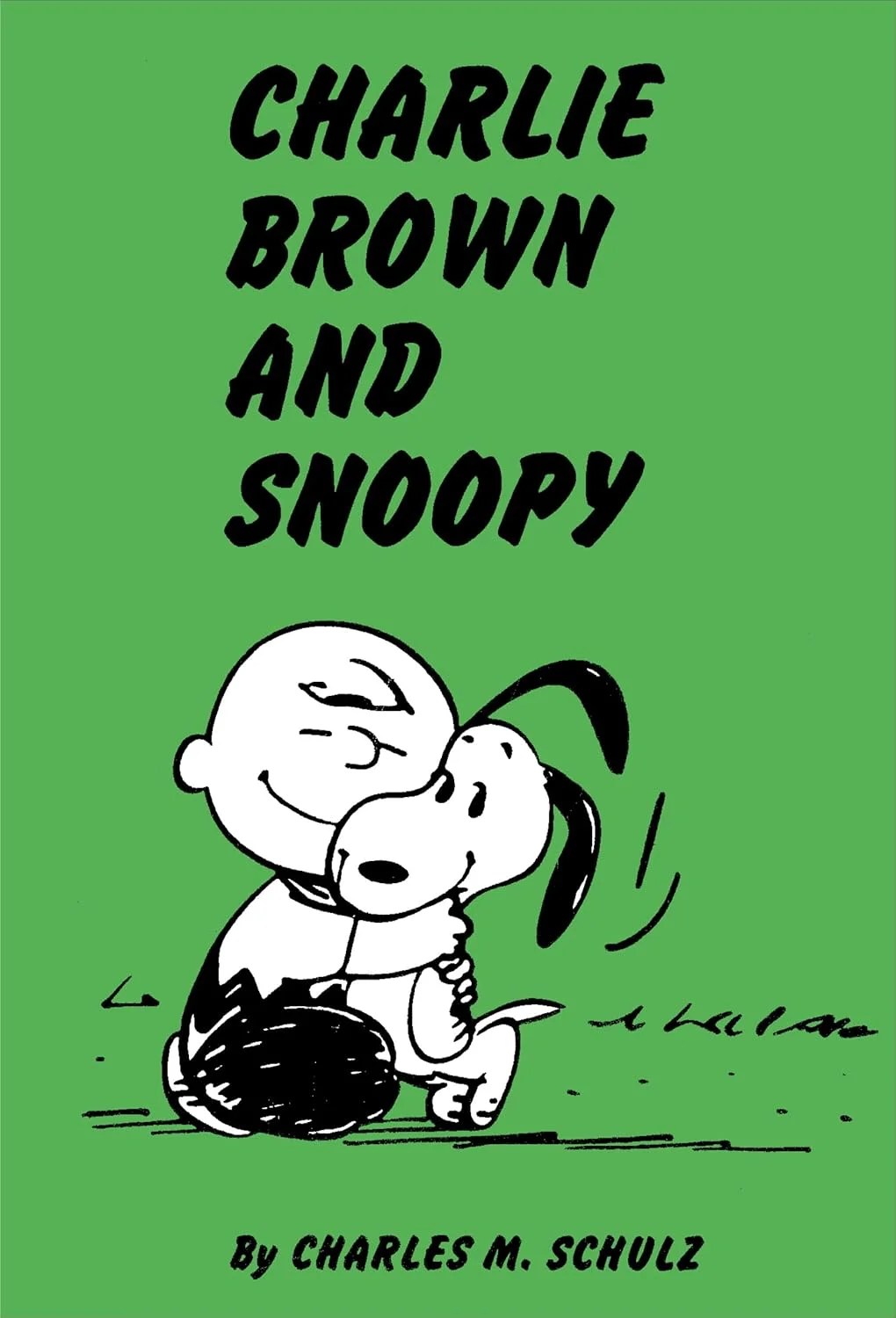
Titan Comics has been doing a remarkable job reviving these treasures. Their facsimile editions balance authenticity with polish; they stay faithful to the original printings while presenting them in fresh, high-quality formats that feel sturdy enough to survive Lucy yanking a football away for the hundredth time.
Their latest effort is Charlie Brown and Snoopy, originally published by Coronet Books in the 60’s. This marks Titan’s twentieth Peanuts facsimile edition. It is an achievement that deserves a Snoopy dance atop his doghouse. Inside are 122 strips from 1963–1964, featuring the full cast: Charlie Brown forever chasing victories that never quite come, Snoopy letting his imagination soar, Lucy dispensing advice with zero empathy, Linus philosophizing while clinging to his blanket and Schroeder lost in Beethoven.
Classic books never really fade away; they just wait for their chance to return, a bit like Linus and his eternal pumpkin vigil or Snoopy daydreaming his way back into the spotlight. Lately, facsimile and reprint editions of comic-related classics have been making a comeback, giving readers a chance to experience them the way they first appeared decades ago.
For me, Peanuts always lived in those little paperback collections I’d dig up at garage sales or book fairs. They were usually creased, dog-eared, and held together with a kind of Charlie Brown resilience. Still, they were pure gold. You could practically hear the distant “wah-wah” of the unseen adults as you turned each page.
What makes these strips so powerful is their deceptive simplicity. A single line from Snoopy about the comfort of returning home, or Charlie Brown’s soft reflection on a small daily ritual, contains more insight than pages of dense philosophy. These moments remind us that meaning hides in the ordinary: the return to one’s own bed, the familiarity of routine, or the warmth of a meal shared—even if overlooked. Having recently gone through similar experiences myself, I found these words resonated in a way that felt both personal and universal.

Take Snoopy, for example. At one point, he reflects, “Happiness is coming home from the hospital.” Meanwhile, Charlie Brown, in his absent-minded but well-meaning way, goes about fixing supper, forgetting entirely that Snoopy had been away in the first place. Snoopy, unfazed, concludes, “It’s kind of nice to get home to your own bed again.”
It’s classic Schulz at his finest, truth wrapped in humor, tenderness veiled in understatement. He manages to turn small details into profound observations, capturing the essence of the human condition with just a handful of words and the subtlest strokes of ink. In this volume, Schulz is at the very peak of his creativity, proving once again that great art doesn’t shout; it whispers.

And then there’s the introduction of oddball “5” (full name: 555 95472). Schulz created him to poke fun at the newly introduced ZIP codes, and his very existence feels like one of those jokes that’s both absurd and profound. Though he never broke out as a star, he popped up at baseball games (someone had to fill out Charlie Brown’s team) and even appeared in A Charlie Brown Christmas with his sisters. By the 1980s, he quietly slipped away into the nether regions of obscurity.
For collectors, this facsimile edition is a chance to hold history in your hands, lovingly reproduced in a way that honors Schulz’s original work. For fans, it’s like catching up with old friends who haven’t aged a day, still navigating the trials of school, the sting of baseball losses, the eternal hope of the Great Pumpkin, and the baffling rules of grown-ups who remain forever offstage.
Charlie Brown and Snoopy by Titan Comics is both a museum piece and a joyride. It is a reminder that in the world of Peanuts, humor and heartbreak, wisdom and whimsy, always walk hand in hand.
Discover more from Sandbox World
Subscribe to get the latest posts sent to your email.